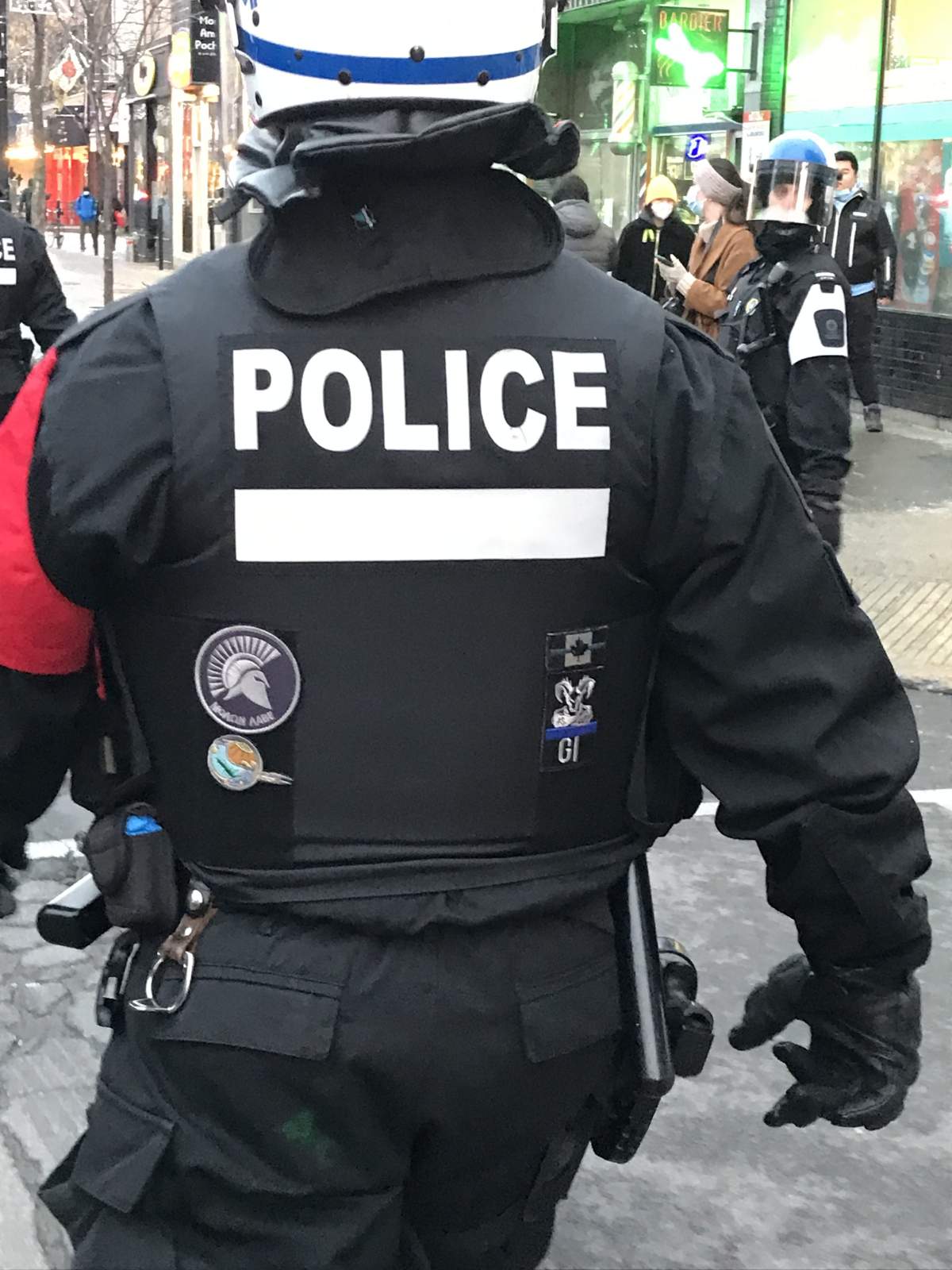Montreal police say they are reviewing the possibility of banning officers from wearing non-uniform patches, including “Thin Blue Line” patches, after a Quebec politician asked the government to issue a provincewide ban this week.

Québec solidaire MNA Andrés Fontecilla said Wednesday he wrote a letter to the provincial Public Security Minister Geneviève Guilbault asking that the government forbid officers in police forces across the province from wearing the controversial symbol after it was seen on on-duty Montreal police officers over the weekend.
In a statement sent to Global News, the Montreal police department said its policy on officer uniforms is currently under review.
“This review includes the force’s position on the wearing of all insignia, which will be looked at by our ethics committee,” said the SPVM’s media officer Caroline Labelle.
Montreal Mayor Valérie Plante said Thursday she was not comfortable with the symbol, adding that “it’s a sign that divides people.”

Get daily National news
READ MORE: RCMP directive eliminates wearing of ‘thin blue line’ patch while on duty
Thin Blue Line patches are a black patch with a blue line running over a national flag. Police officers in Quebec have been seen wearing the Canadian version at various protests since the symbol became more prominent and controversial after the massive anti-police brutality Black Lives Matter (BLM) protests in the U.S. and around the world in 2020.
The patch was most recently pictured on SPVM officers at the Montreal trucker blockade support protest on Saturday.
The same symbol was also seen on an officer at a Wet’suwet’en solidarity protest in November. The patch is meant to symbolize solidarity among law enforcement, but critics say it is controversial and divisive due to its association with right-wing and white nationalist groups.
The Thin Blue Line Canada website says the patch is meant to commemorate fallen officers and “show support for law enforcement in general.”
Critics across North America however say the symbol creates a divisive us-versus-them mentality and doesn’t help strengthen ties between police and the communities they are meant to serve.
Some police forces in Canada have banned officers from wearing the patch on the job. The country’s largest force, the RCMP, advised its officers they could no longer wear it while on duty in the fall of 2020 after the BLM summer protests.
“The subdued flag with a blue bar has become widespread in North America as a sign of solidarity and support for police,” Al McCambridge, corps sergeant major with the RCMP’s executive, wrote in a memo obtained by Global News in 2020. “While this may be common, it is not an approved symbol and is not to be worn on our uniform.”
Then in February 2021 Ottawa’s police department banned it, and the Saint John Police Force in New Brunswick did the same months later.
“It certainly represents a sort of solidarity against the public and particular elements of the public — Black and Indigenous people especially,” said Sandy Hudson, founder of Black Lives Matter Canada.
READ MORE: Ottawa police chief bans officers from wearing ‘thin blue line’, other patches
Concordia University associate professor Ted Rutland said he agrees. He says the symbol represents opposition to the Black-led BLM movement fighting police brutality and racism, adding that its resurgence was in response to the 2020 protests.
“What the wearing of the patch signifies is that there are people within the police force who don’t want a change at a time when society absolutely wants our police to look different and wants public security to look different,” he said.
Like Hudson, Rutland said the patch is a symptom of a larger problem within law enforcement.
Quebec’s public security office has not commented on the issue.
The province’s current Bill 133, a legislation passed in 2017, however prohibits officers from altering their police uniforms.
— with files from Morganne Campbell, Craig Lord, Olivia O’Malley and Annabelle Olivier, Global News













Comments
Want to discuss? Please read our Commenting Policy first.